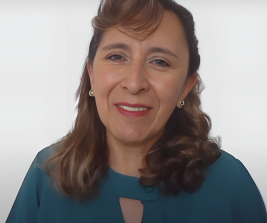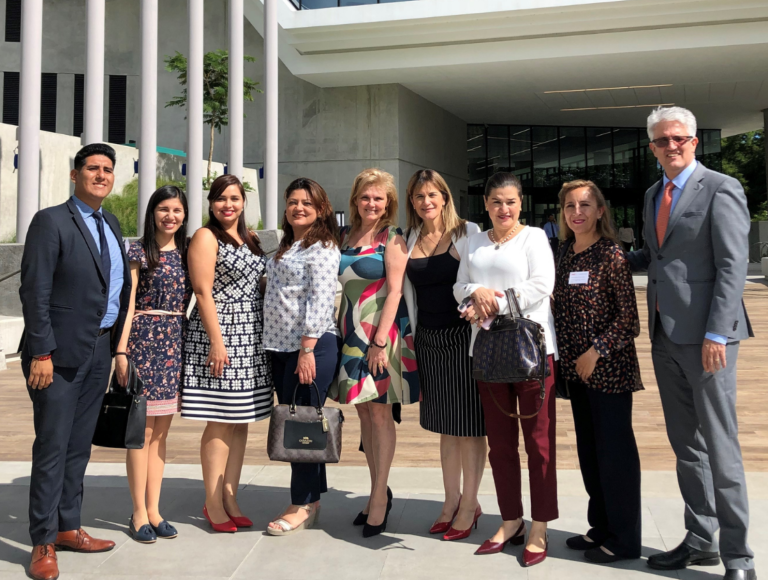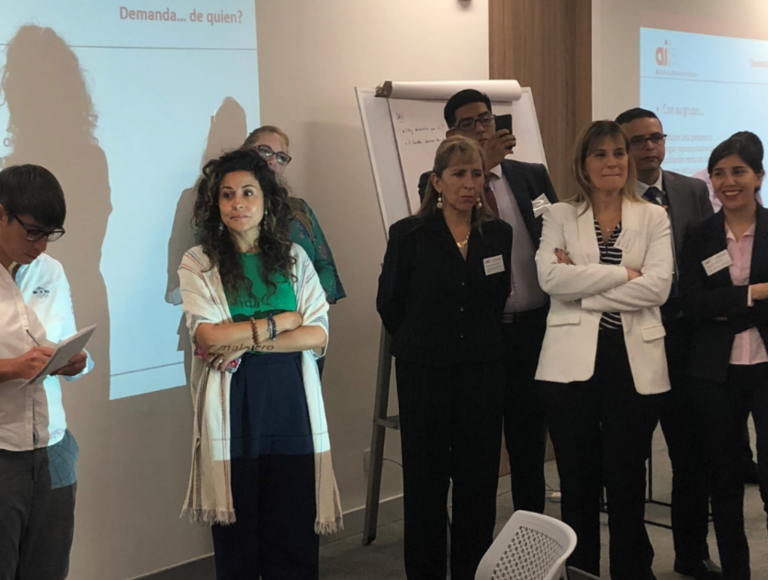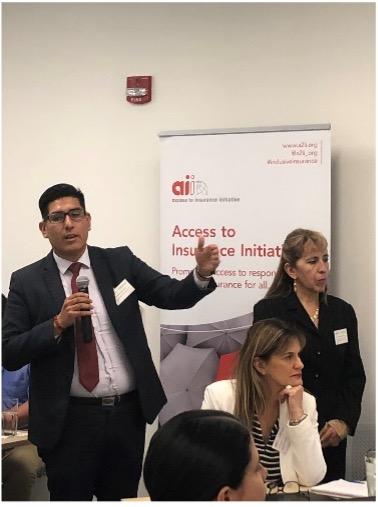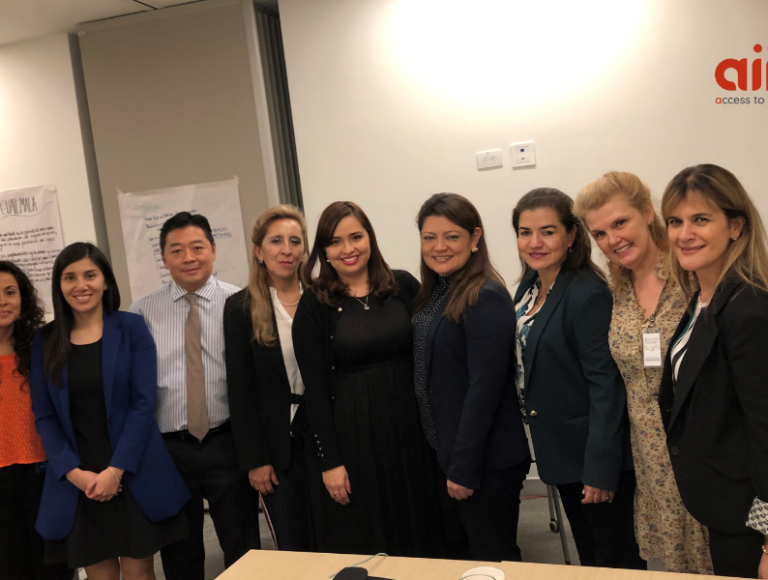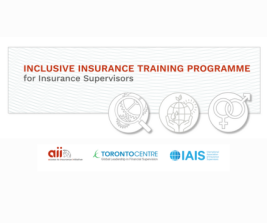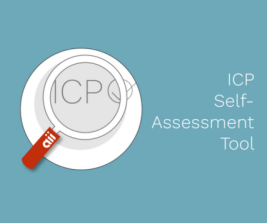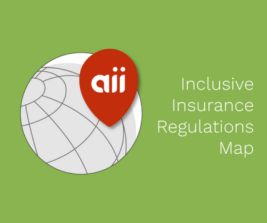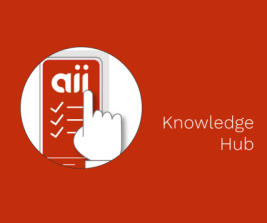
Bolivia’s Journey to Inclusive Insurance
In August 2022, the Bolivian Pension and Insurance Supervisory and Control Authority (APS) launched an Inclusive Insurance Regulation aimed at increasing access to insurance products for low-income populations. This case study examines the background, objectives, and outcomes of the Bolivian Action Plan that has led to the new Regulation.
The journey begins with Bolivia's participation in the A2ii-IAIS-Toronto Centre Inclusive Insurance Training in 2019, an instrumental step in the country's decision to launch an inclusive insurance regulation in 2022. The regulation, developed over the course of several years, faced political challenges and a global pandemic and was a direct result of the action plan drawn up by the participants from the APS during the training, subsequently supported by the A2ii and the Toronto Centre until its launch.
After the regulation was launched and implemented, A2ii interviewed key stakeholders to learn about their experience and perspectives in the regulatory process.
According to the APS 2019 data, Bolivia has a low insurance penetration rate of 1.4%. This lack of insurance coverage leaves many vulnerable segments to financial shocks, such as illness, accidents, or crop failures. Traditional insurance products were often too expensive or difficult to access for many Bolivians. In recognition of this problem, the Bolivian Supervisor took action to increase access to insurance products.

Following the completion of the Inclusive Insurance Training and based on the presentation of Action Plans by the participating jurisdictions, the Access to Insurance Initiative and Toronto Centre included the Bolivian Supervisor in the intensive follow-up programme. The programme included additional expert advice and guidance throughout the implementation of the Bolivian Action Plan.
At this time, Bolivia was in a politically sensitive period, with a transitional government in place. Presidential elections had been scheduled initially for May that year, and later postponed to a different month in 2020. The expectations were that the results would impact the Supervisor.
From November 2019 to January 2020, changes in the highest executive authority occurred on two occasions: in November, due to the change of Government and in January, when a new executive director was appointed.
The global Covid-19 pandemic affected the Action Plan implementation timelines. In May 2020, lockdown policies came into effect in Bolivia.
To mitigate the possibility of adverse effects of political changes on the plan, the APS formed a working team around it - Team Champion – with the objective of elaborating the Action Plan that could sustain continuity even with potential new senior management.
Team Champion’s draft workplan and corresponding 2-year timeline outlined the following 7 phases for implementation:
In June 2020, the Team Champion of the APS successfully presented the Action Plan to the Board. With the buy-in of the Senior Management and the APS Insurance Director, the formation of the Team Champion, and the guidance and support of the A2ii/TC expert team, the implementation of the Bolivian Action Plan officially kicked off.
Despite the Action Plan in place, the effects of the pandemic considerably delayed multiple subsequent processes therefore, in this phase, the outputs were:
Two scoping reports supported by the Swiss Agency for Development and Cooperation (SDC) and the Profin Foundation.
Based on the reports, A2ii and the TC provided a more detailed analysis and guidance for the APS at this stage.
Despite turbulences and turnovers of key managerial roles within the APS on top of the pandemic, the supervisor has, under the leadership of Mónica Eguilos as the acting Insurance Director, set forth a list of options as a possible way forward:
A new law – that would require time to undergo the necessary procedures in the Plurinational Legislative Assembly as well as additional time for promotion
A regulation – under the hierarchy of the APS as "Resolución Administrativa", that would allow for a special regime similar to those of mass and group insurance
Sale of inclusive insurance through two public insurance companies (life and non-life), given that their vision aligned with the State objectives
Regarding regulatory measures, enacting a law may prove to be a lengthy and challenging process as it requires consensus among all stakeholders and is often subject to political considerations. As an alternative, A2ii proposes the implementation of regulations of a lower hierarchy, such as Administrative Resolution, while utilising technical roundtables to heighten awareness and encourage insurer participation in the marketing of such products.
It is also recommended to involve public insurers in promoting these products. Subsequently, tax incentives for microinsurance lines and/or dedicated microinsurers could be considered as part of a legislative effort in the future.
- Perform a survey as an instrument for identifying the needs of potential policyholders and the necessary direction for future work by revealing relevant trends. The Swiss Agency for Development and Cooperation (SDC) and the Profin Foundation have secured financial support for its implementation.
- Include considerations of Covid-19 impacts in order to maintain industry interest as well as support from relevant organisations
- Plan for a series of technical and multilateral/multistakeholder roundtables with representatives from various ministries, the central bank, industry, experts and academia. The objective is to facilitate coordination and exchange of information as well as to gather insight into the new regulation’s potential impact on the market

Following the appointment of the new APS Executive Director, María Esther Cruz López, and the new Director of Insurance, Helen Gabriela Mamani, a final series of calls took place between the APS Board and the A2ii and the TC to scope out opportunities for further support of the implementation of inclusive insurance and other supporting topics for Bolivia such as:
- The A2ii Regional Implementation Plan for Latin America
- The A2ii-IAIS ICP Self-Assessment Tool (SAT Tool)
- A2ii Toolkit No. 1 – Country Diagnostic Studies: Analytical Framework and Methodology with which the A2ii could support the APS in the review of its country diagnostic.
In April 2022, APS Bolivia submits its version 1 of the Inclusive Insurance Regulation to the A2ii for review and commenting. In August of the same year, the authority launched its Inclusive Insurance Regulation.
Until 2022, some insurance companies in Bolivia such as ‘Credinform’, had been developing inclusive insurance products for the underserved population in Bolivia. With the introduction of the new regulation, all market players are invited to promote the issuance of these products and consequently, the expansion of the inclusive insurance market.

Download the case study as a PDF here:
A2ii congratulates the APS and the IIT participants for their work on the Bolivia Inclusive Insurance Regulations.




